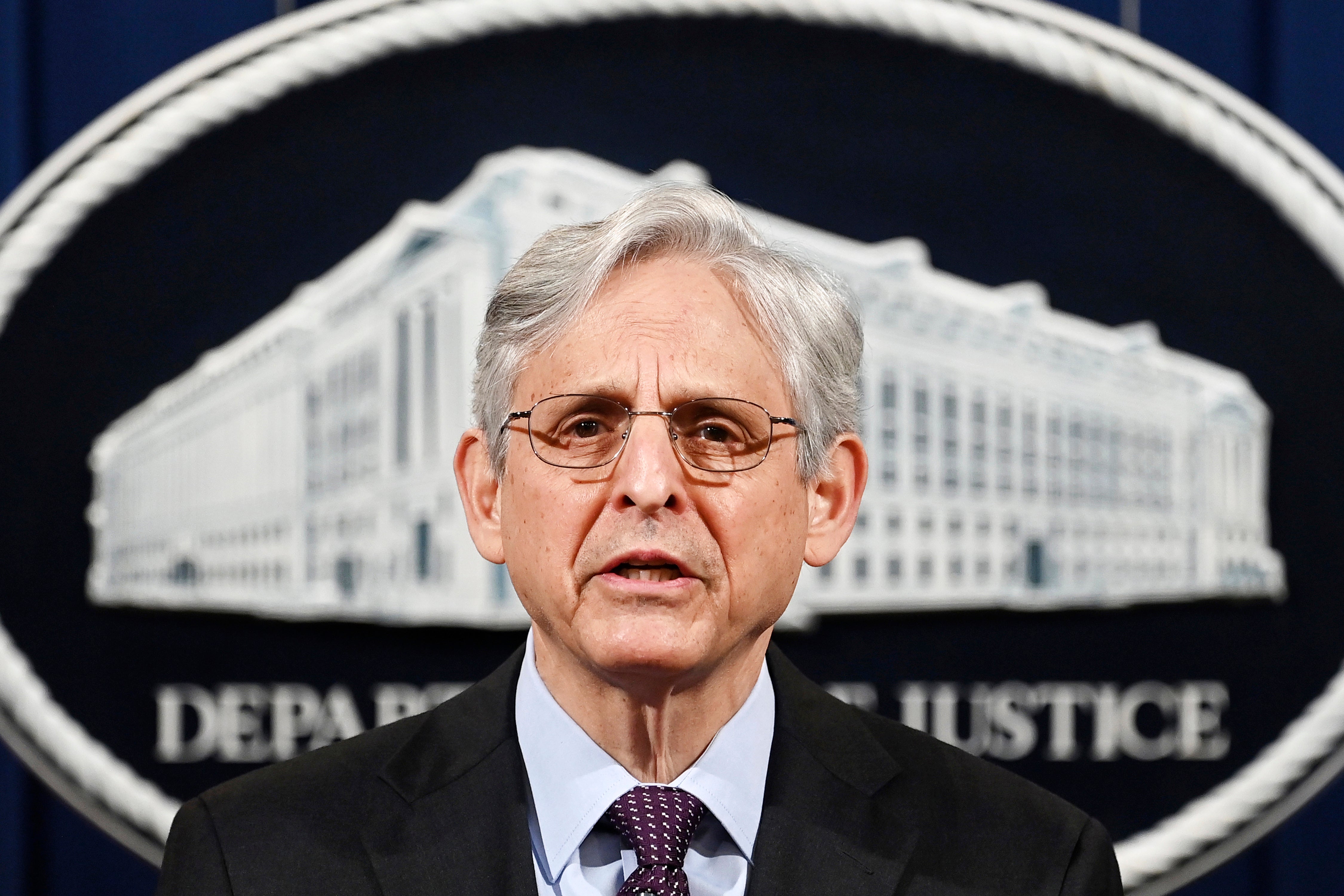Biden’s DOJ is defending Trump in a rape denial case. That sends a message to women everywhere
There was no need to stick to this precedent, but the president chose to anyway. This will have both legal and cultural consequences


Your support helps us to tell the story
From reproductive rights to climate change to Big Tech, The Independent is on the ground when the story is developing. Whether it's investigating the financials of Elon Musk's pro-Trump PAC or producing our latest documentary, 'The A Word', which shines a light on the American women fighting for reproductive rights, we know how important it is to parse out the facts from the messaging.
At such a critical moment in US history, we need reporters on the ground. Your donation allows us to keep sending journalists to speak to both sides of the story.
The Independent is trusted by Americans across the entire political spectrum. And unlike many other quality news outlets, we choose not to lock Americans out of our reporting and analysis with paywalls. We believe quality journalism should be available to everyone, paid for by those who can afford it.
Your support makes all the difference.In deciding to continue defending former President Donald Trump in the defamation suit brought against him by writer E. Jean Carroll, the Biden justice department has tried to distance itself from the alleged rape at the heart of the suit. This case is about precedent and federal employees’ immunity privileges, according to DOJ lawyers. Whether or not the former president raped Carroll, as she alleges, is not at issue. Except of course it is. The defamation suit is about getting the only kind of justice Carroll could hope for — validation.
After Carroll publicly accused Trump of raping her in a department store dressing room in the early ‘90s, Trump’s response was to call her a liar, along with other crude remarks. Carroll then filed the defamation suit against him. Then, when Trump Attorney General Bill Barr made the highly unusual move to compel the justice department to defend the president in this suit, Trump was accused (including by Biden himself) of using the federal government as his personal law firm.
AG Barr argued that as president, Trump was a federal employee and his remarks about Carroll were made in the performance of his duties, making him therefore immune to civil suits of this kind. And there is a legal argument for Garland to continue the precedent set by the former administration. But there is also an equally compelling legal argument for dropping the case, according to legal experts. Other administrations have broken precedent set by earlier presidents, and there is no legal obligation to follow bad precedent for the sake of precedent alone.
This means that Biden and Merrick Garland’s DOJ had a choice to make, and it seems they chose to delegitimize the significance of a rape accusation for the sake of logistics.
It is long past the statute of limitations which would have allowed Trump to be criminally tried for assault. Should Carroll’s suit be successful, Trump will not be punished for the alleged rape, but she would have won public acknowledgement that the assault actually happened. In arguing that the actual rape is outside the scope of this case, the justice department actually has made a determination about the allegation — that it is irrelevant. By defending Trump, the DOJ is using the might of the federal government to silence a survivor of alleged sexual assault.
This choice doesn’t just have legal impact. It has a cultural impact as well.
The argument has been made so many times as to be hackneyed at this point — vanishingly few rapists are ever charged for the crime and even fewer are punished. Survivors are often dismissed and disbelieved, if they bother to make the accusation at all.
In her essay describing the rape, Carroll explains why she waited to come forward: “Receiving death threats, being driven from my home, being dismissed, being dragged through the mud, and joining the 15 women who’ve come forward with [seemingly] credible stories about how [Trump] grabbed, badgered, belittled, mauled, molested, and assaulted them, only to see the man turn it around, deny, threaten, and attack them, never sounded like much fun. Also, I am a coward.”
But survivors are not always so crudely dismissed. In clinging to (strained, at best) precedent set by AG Barr, Garland is now demonstrating one of the myriad ways bureaucracy, legalese, and esoteric institutional norms also work to silence and dismiss women who make sexual assault accusations. Rape survivors may not choose to prosecute their rapists because of the traumatizing impact of a long and drawn-out criminal court case. A college student who accuses a fellow student is sent through a dozen administrative hoops before any action is taken, if at all. Anita Hill and Dr Christine Blasey Ford willingly subjected themselves to hours of painful, antagonistic testimony only to see their alleged assaulters ascend to the Supreme Court anyway.
The DOJ is not interested in whether or not Trump raped Carroll because legal consistency, however illogical and amoral, is more important to the department than is actual justice. This decision further cements our norm of sidelining sexual assault in favor of more important things, like obscure legislation to protect federal employees from consequence.
“The DOJ’s position is not only legally wrong, it is morally wrong since it would give federal officials free license to cover up private sexual misconduct by publicly brutalizing any woman who has the courage to come forward,” Carroll’s lawyer Robbie Kaplan wrote on Twitter. While this may certainly be true, it’s hard to believe that federal officials don’t already have free license to cover up sexual misconduct any way they choose.
The Access Hollywood tape, in which Trump appeared to brag about sexually assaulting women, wasn’t enough to lose him the 2016 election, but some did hope that the Biden administration would at least take some steps to show that sexual assault is a serious crime. President Biden has said that no one, not even the president, is above the law. But it would appear his attorney general disagrees. To Garland, it seems that sheltering the former president from the law is more important than getting justice for alleged sexual assault.
Join our commenting forum
Join thought-provoking conversations, follow other Independent readers and see their replies
Comments